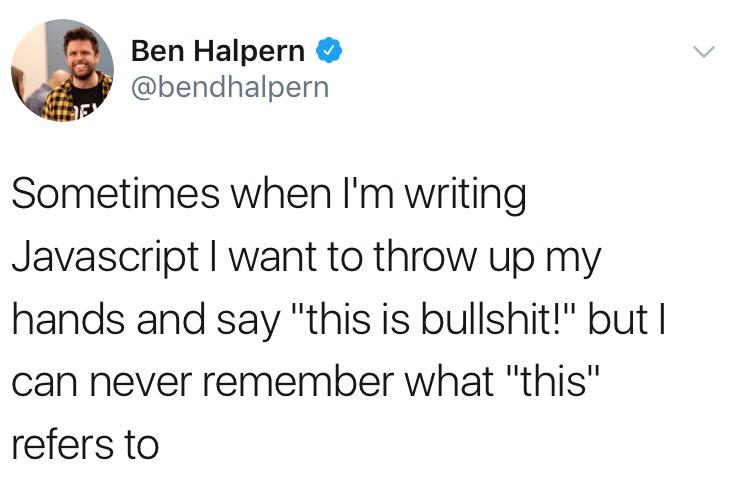Ranter
Join devRant
Do all the things like
++ or -- rants, post your own rants, comment on others' rants and build your customized dev avatar
Sign Up
Pipeless API

From the creators of devRant, Pipeless lets you power real-time personalized recommendations and activity feeds using a simple API
Learn More
Comments
-
This is *way* more common than you might believe. Though I must admit I hardly miss it considering I'm not a huge fan of tons of if/else blocks anyway.
-
iirc, neither does Python actually, elif is just syntactic sugar. If you do an AST dump via the ast module you'll see that elifs become nested else-ifs.
Might be wrong about this but I had to build a DSL in python and I remember that I didn't have to do anything to handle elifs after doing if-else. Or maybe I just don't remember. -
In all fairness, if you need an "elseif" clause, you fucked up anyways...
In my entire website, there is not a *single* "elseif" clause in the code that I wrote...
Heck, I kinda even forgot they were a thing honestly... -
@PepeTheFrog they do, but if I understand correctly it doesn't get parsed as a single "else if" token
-
At least it's not a batch script where you need to open parenthesis between else and if

 This never gets old...
This never gets old... Exactly
Exactly ¯\_(ツ)_/¯
¯\_(ツ)_/¯
Mind blow of the week: JavaScript has no "else if".
It's always two tokens. Not one. It's NOT like python's "elif".
It's ALWAYS chaining an additional and DISTINCT if statement in the else clause of the first. It is NOT creating multiple comparison paths in the same if statement as it would seem.
For example:
if(a) console.log(a);
else if(b) console.log(b);
else console.log(c);
Simply needs more proper indentation to show which "if" the "else" actually belongs to:
if(a) console.log(a);
else
if(b) console.log(b);
else console.log (c);
rant
javascript